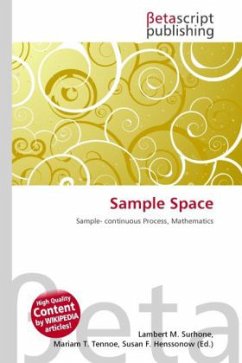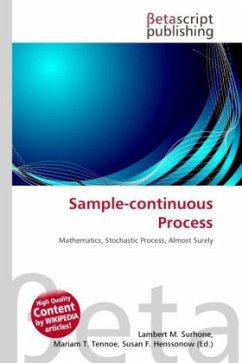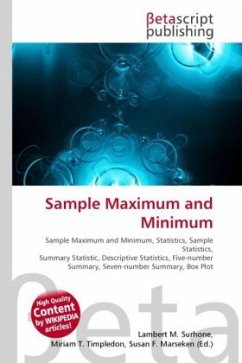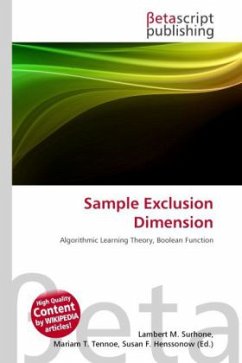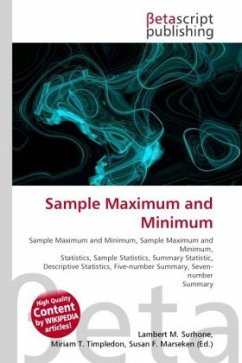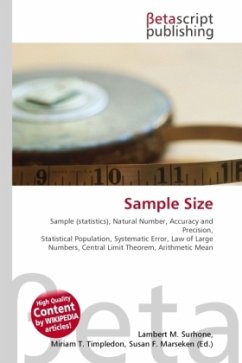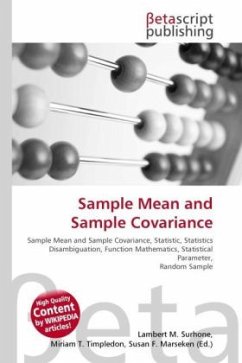High Quality Content by WIKIPEDIA articles! In probability theory, the sample space or universal sample space, often denoted S, , or U (for "universe"), of an experiment or random trial is the set of all possible outcomes. For example, if the experiment is tossing a coin, the sample space is the set {head, tail}. For tossing a single six-sided die, the sample space is {1, 2, 3, 4, 5, 6}. For some kinds of experiments, there may be two or more plausible sample spaces available. For example, when drawing a card from a standard deck of 52 playing cards, one possibility for the sample space could be the rank (Ace through King), while another could be the suit (clubs, diamonds, hearts, or spades). A complete description of outcomes, however, would specify both the denomination and the suit, and a sample space describing each individual card can be constructed as the Cartesian product of the two sample spaces noted above.
Bitte wählen Sie Ihr Anliegen aus.
Rechnungen
Retourenschein anfordern
Bestellstatus
Storno

